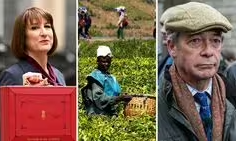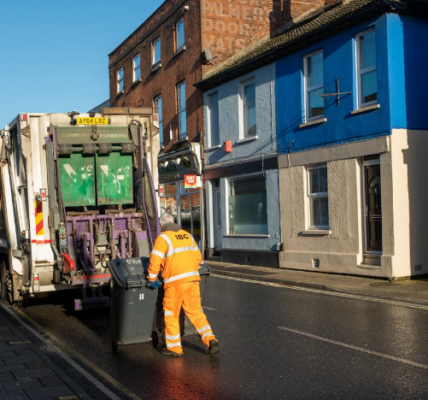The Daily Express revealed this week that the UK is sending over £500million to other countries to help them with farming projects.

Farmers are furious with the inheritance tax changes (Image: Getty)
Prime Minister Sir Keir Starmer and his Labour Government have sparked outrage after unveiling plans to change inheritance tax rules for farmers.
In the Budget, Chancellor Rachel Reeves announced that Agricultural Property Relief (APR) and Business Property Relief (BPR) will be capped at £1million.
Other exemptions mean most farmers will start paying inheritance tax on assets worth over £3million, but many fear this will still leave many heirs with no choice but to sell their family farms.
The Government has argued that only 27 percent of farms will be affected by the tax each year.
Further anger has erupted after the Daily Express revealed that the Government is sending more than £536million to farmers overseas in places like Africa, Asia, and South America.
Do you think the UK should be spending funds on farming projects abroad? Let us know your thoughts in our poll below. Can’t see the poll? Click here.
READ MORE 250k Brits sign petition against Rachel Reeves’ cruel tractor tax
The spending includes low-carbon projects in Brazil, as well as £16million to help new farmers in Rwanda produce tea for the first time.
Shadow cabinet minister Robert Jenrick hit out at Labour for “spending hundreds of millions on foreign farmers while British livelihoods are destroyed by their cruel inheritance tax changes”.
But the Prime Minister defended the over £500million spending on farming projects abroad.
A spokesperson for Sir Keir said: “We are absolutely committed to supporting farmers here in the UK, and that’s why we’re committing more than £5billion into farming at home over the next two years.
“Our investment into British farmers is an investment in our food security and our national security.
“When it comes to some of the investments in projects overseas, the UK has driven scientific advances in food and agriculture which will benefit millions around the world, including UK farmers.”


